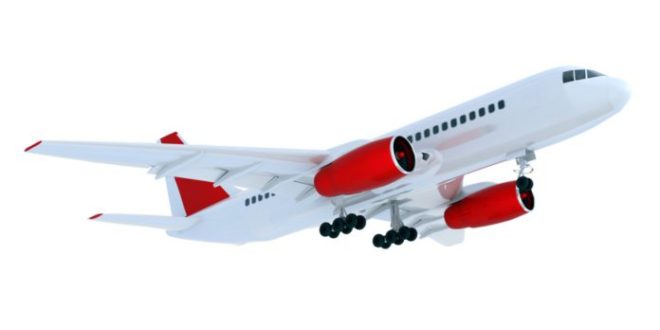While the reopening of air borders is looming, many uncertainties remain about when air traffic will return to normal to and from Africa. Jeune Afrique and The Africa Report takes a look at the situation.
After more than three months without flying, airline companies are finally seeing the light at the end of the tunnel.
Since 25 June, Royal Air Maroc began operating a portion of its domestic flights (Agadir, Dakhla, Laâyoune and Oujda) from its Casablanca hub, followed by its other hubs, Marrakech and Tangier. The low-cost airline Air Arabia Maroc will also resume operations on the same date, while Air Côte d’Ivoire will reopen for business on 26 June.
However, for many airlines, the situation is less certain. The pan-African carrier ASKY Airlines, which provides service to destinations from Lomé, is waiting for African countries to open their borders before making any announcements. Similarly, Air Algérie has not announced an operations resumption date. Plagued by major financial difficulties, Air Mauritius is set to get back to business on 1 September, whereas RwandAir has suspended its flights until further notice.
On 25 June, Egypt Air said it would resume international flights gradually as of 1 July. The first round from 1 – 7 July will include: Abu Dhabi, Addis Ababa, Amsterdam, Paris, Toronto and Washington DC (among others).
As of 8 June, South Africa’s Airlink began taking bookings, while Safair began flights on 15 June. Mango, the low-cost airline of the near bankrupt South African Airways (SAA) group, also resumed domestic flights as of 15 June.
South Africa has banned leisure travel until the 5-phase lockdown is entirely lifted. It is currently at level 3.
Many question if South African Airways will be able to resume international flights given it was struggling with bankruptcy prior to the pandemic. A vote by SAA creditors has been postponed to 16 July.
TAKE TO THE SKIES
Coronavirus: Which African airlines are taking off and when?
By Rémy Darras
Posted on Friday, 26 June 2020 16:47
South Africa Zuma Inauguration
A South African Airways Airbus takes to the skies on Saturday, May 24, 2014. (AP Photo/Themba Hadebe)/
While the reopening of air borders is looming, many uncertainties remain about when air traffic will return to normal to and from Africa. Jeune Afrique and The Africa Report takes a look at the situation.
After more than three months without flying, airline companies are finally seeing the light at the end of the tunnel. Since 25 June, Royal Air Maroc began operating a portion of its domestic flights (Agadir, Dakhla, Laâyoune and Oujda) from its Casablanca hub, followed by its other hubs, Marrakech and Tangier. The low-cost airline Air Arabia Maroc will also resume operations on the same date, while Air Côte d’Ivoire will reopen for business on 26 June.
However, for many airlines, the situation is less certain. The pan-African carrier ASKY Airlines, which provides service to destinations from Lomé, is waiting for African countries to open their borders before making any announcements. Similarly, Air Algérie has not announced an operations resumption date. Plagued by major financial difficulties, Air Mauritius is set to get back to business on 1 September, whereas RwandAir has suspended its flights until further notice.
On 25 June, Egypt Air said it would resume international flights gradually as of 1 July. The first round from 1 – 7 July will include: Abu Dhabi, Addis Ababa, Amsterdam, Paris, Toronto and Washington DC (among others).
As of 8 June, South Africa’s Airlink began taking bookings, while Safair began flights on 15 June. Mango, the low-cost airline of the near bankrupt South African Airways (SAA) group, also resumed domestic flights as of 15 June.
South Africa has banned leisure travel until the 5-phase lockdown is entirely lifted. It is currently at level 3.
Many question if South African Airways will be able to resume international flights given it was struggling with bankruptcy prior to the pandemic. A vote by SAA creditors has been postponed to 16 July.
Gradual reopening of borders
In the intercontinental segment, Ethiopian Airlines and Kenya Airways will be providing service to Paris, Geneva and Brussels in July, but with a reduced flight schedule. After a controversy sparked by the posting of a fake flight schedule on social media in May, Air France has listed several African capitals in its flight plan for July: Conakry, Cotonou, Douala, Yaoundé, Nouakchott and Tunis. The airline is currently preparing landing authorisation requests for the various countries concerned.
Resurrecting flights from Europe is pinned on both the ability to receive authorisation from national civil aviation authorities and the reopening of the Schengen Area. In mid-June, the ECOWAS Ministerial Coordinating Committee for Transport, Logistics, Free Movement and Trade recommended a gradual reopening of air borders: 15 July for flights between member states, 22 July for flights to non-member African countries and 1 August for intercontinental flights.
These projected dates come up against two obstacles: the health situation is neither clear nor stabilised in several African countries and fears about a second wave remain high in Europe. As a result, no one wants to be responsible for potentially importing cases in either direction.
For passengers, new restrictions are surfacing. For example, Congolese nationals stuck in Paris who want to get on an Air France repatriation flight will have to provide proof that they were tested for COVID-19 before boarding the flight upon their arrival in Brazzaville and Pointe-Noire. Once they have disembarked, they will have to undergo another COVID-19 screening and quarantine at a hotel.
Air Senegal targets mid-July for Paris flights
Airlines think it will take a while for business to return to pre-pandemic levels. Air Côte d’Ivoire, whose operations are currently limited to domestic destinations (Korogho, San Pedro, Bouaké, Man and Odienné), accordingly plans on a gradual return to its normal service schedule: in a first phase, 25% of flights will resume, before increasing to 50%, all the while having no intention of giving up its expansion strategy in the long-haul segment.
Another example is that of Air Senegal, which resumed its service to Ziguinchor this past weekend, a destination it will get back to serving daily as of next week. While Senegal’s borders are to remain closed until 30 June, the young company, which sent all of its pilots to France to take a “refresher” flight simulator course, plans, according to our sources, to resume flights to Abidjan (four times a week, initially) and to Praia in mid-July. Air Senegal hopes to get back to operating flights to destinations such as Conakry, Bamako, Casablanca, Barcelona and Marseille in early August, and, starting in September, Ouagadougou, Niamey, Accra and Lagos. This means the airline could be operating 80% of its pre-pandemic flights at the end of August. Air Senegal will begin offering daily service to Abidjan in October, if traffic allows for it.
The airline will know in the coming days if it will be able to resume its service to Paris in mid-July, as it hopes, with an initial schedule of five flights a week. “We can’t figure out how high demand will be. We don’t want to be in overcapacity, but we assume there will always be a segment of travellers who are flying to visit their loved ones,” says a source from Air Senegal, which is set to receive its two A321s in September and October and was the beneficiary of government grants of 45bn CFA francs (€68.5m), an amount which surpasses its target for the funding round scheduled in 2021.
Long-term schedule reductions
For the main West African operators, the crisis could bring about a more streamlined offering, while just before the pandemic many players were battling over small markets. “There were 320,000 seats available for flights between Abidjan and Dakar in a market with 150,000 to 170,000 passengers. The end result is that planes were operating at between 50% and 70% capacity.
The most predatory airlines will surely be more cautious and no longer operate as many flights as before,” says an executive from a West African carrier, adding that Brussels Airlines suspends its stopovers in Conakry and Ouagadougou when Kenya Airways and Vueling reduce their flight schedules.
What’s more, the financial situation of certain players like Air Burkina and Camair-Co, which have temporarily laid off their employees, makes a quick resumption of service more hypothetical than anything else.
Several firms are currently working on air traffic recovery scenarios for carriers and airports. “Three different realities are possible: traffic will fully resume despite the presence of COVID-19 cases, traffic will resume between certain countries that reopened their borders and traffic will resume without any particular restrictions in the absence of no new COVID-19 cases,” says Jean-Marc Bourreau, Global Director of Aviation at the Canadian firm CPCS. He is not counting on a broad-based rebound of air traffic.
SOURCE: theafricareport.com
 Home Of Ghana News Ghana News, Entertainment And More
Home Of Ghana News Ghana News, Entertainment And More






